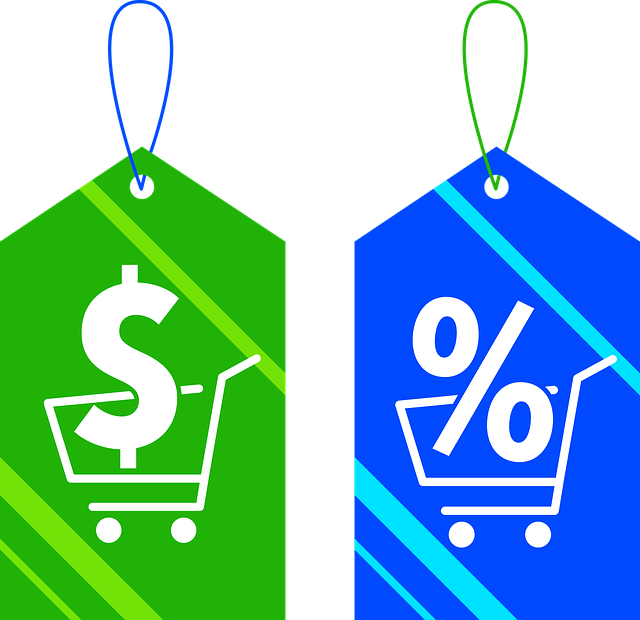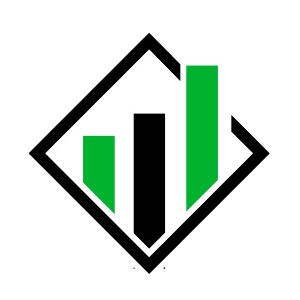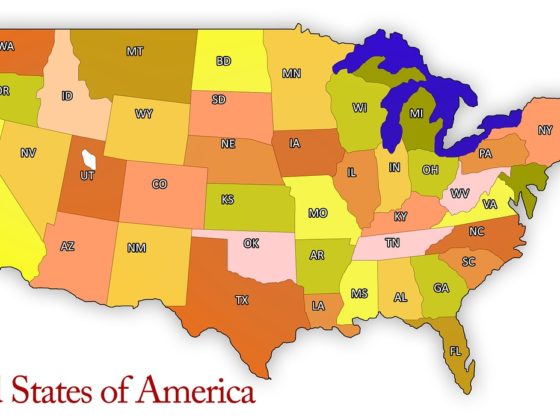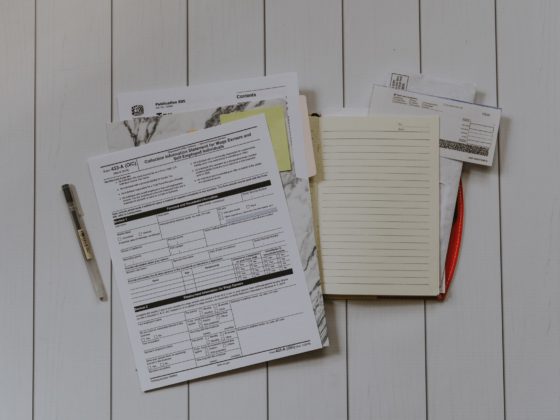Introduction
Good day Amazon, Shopify, and other eCommerce Sellers!
Most of you have been hearing a lot of developments with regards to rapid changes in sales tax regulations in the United States. But what about our own near-and-dear Canada and its provinces?
Well, the time has come for some changes to the Canadian sales tax landscape as well. As any Canadian will tell you, we have one province here in Canada who loves doing things their own way. And that province is… surprise, surprise – Quebec.
As things can become very technical, I like to structure these types of guides in a Questions and Answers format so that they are easier to comprehend for eCommerce sellers.
So, let’s get straight to it.

Changes to Quebec Sales Tax (QST) for eCommerce Sellers
What is Quebec Sales Tax?
Quebec sales tax (QST) is a value-added form of taxation on goods and services sold to Quebec residents. It is charged on a provincial level on top of the federal sales tax. The tax is collected and remitted to Revenu Quebec, the government body responsible for the administration of provincial tax laws.
As of the time of writing of this article (March 2019), the current QST rate is 9.975%. The QST is collected on top of GST of 5%, making the effective sales tax rate of 14.975% for Quebec residents.
What are the new developments in Quebec sales tax regulations?
The Quebec provincial government has been really concerned about traditional small businesses being at a disadvantage as compared to online eCommerce sellers when it comes to collection of sales taxes. The changes introduced in March 2018 are directed to provide an even playing field and ensure tax fairness for local businesses.
In the past, online businesses did not have to collect and remit the Quebec sales tax (QST) on the products and services sold to Quebec customers if they did not have a permanent establishment, solicit any sales, or had any inventory in Quebec.
Were there any changes to income tax requirements?
No. This change only affects sales taxes related to eCommerce sales to Quebec consumers.
It does not affect your corporate income tax obligations. The basis for paying and filing Quebec income tax for a business is determined by the degree of your connection to the province (physical presence, property acquired, employees hired, etc.).
Who is affected by the changes?
There are three groups of businesses affected by these changes:
- Canadian out-of-province eCommerce sellers who sell products or services to Quebec consumers
- International out-of-country eCommerce sellers who sell products or services to Quebec consumers
- Digital platforms who facilitate the sale of products or services to Quebec consumers
What about QST requirements on B2B sales?
Based on the way the new law was formulated, the new changes only apply to sales to Quebec consumers. B2B transactions with Quebec businesses who are registered for QST are not subject to QST on out-of-province sales of products or services.
The new law strictly applies to online sales to Quebec consumers.
How does the Quebec government define eCommerce businesses?
You carry on an eCommerce business if you earn income from business transactions conducted over the Internet, telephone or fax, or using any other electronic device.
What specific products or services are falling under the eCommerce category?
- Tangible property: physical products
- Intangible property: SaaS and other software, digital products, ebooks, trademarks, patents
- Services: streaming services, telecommunications
When are the Quebec sales tax changes are coming into effect for eCommerce sellers?
The changes are coming or have come into effect on the following dates:
- Canadian out-of-province sellers: September 1, 2019
- International out-of-country sellers: January 1, 2019
- Marketplaces and digital platforms: January 1, 2019
Who is considered to be an international out-of-country seller for QST purposes?
You are considered to be an international out-of-country seller and are required to register if you meet all of these criteria:
- Do not carry on a business in Canada
- Do not have a permanent establishment in Canada
- Are not registered for GST/HST or QST
- Sell more than $30,000 CAD to Quebec consumers outside of digital platforms
Who is a Canadian out-of-province supplier for QST purposes?
Canadian out-of-province supplier is a company that meets all of these criteria. Your business:
- Does not sell products and services out of Quebec, but does carry on business in other provinces
- Does not have any physical presence in Quebec
- Is registered for GST/HST account
- Not registered for QST
What is considered a digital platform for QST purposes?
A digital platform is required to register, start collecting and remitting on behalf of its sellers if it meets these two criteria:
- The platform enables another person to make a supply of products or services to a Quebec consumer
- The platform facilitates essential elements of the transaction (payment, terms and conditions, delivery, etc.)
For example, 3rd party eCommerce marketplaces like Amazon, eBay, Etsy, Newegg, Walmart, Best Buy, etc. are considered to be digital platforms for QST purposes.

Quebec Sales Tax Requirements for Canadian eCommerce Sellers
What Canadian eCommerce businesses are required to register and collect QST?
You are required to register for a QST account with Revenu Quebec if you meet all of the following criteria:
- You are are a Canadian company, but you don’t operate out of Quebec
- You are registered for a GST/HST account
- You have sold more than $30,000 CAD to Quebec consumers outside of digital platforms in the last 12 months
Do I have to register if I sell more than $30K to Quebec customers on digital platforms like Amazon, eBay, Etsy, etc.?
No. The law obligates the marketplaces like Amazon and eBay to register, collect and remit Quebec sales tax on seller’s behalf. The marketplaces like Amazon will administer the collection and remittance process, and charge a fee for that service.
If you sell on smaller marketplaces, please double-check with your digital platform provider that they have registered and are fulfilling their Quebec sales tax collection obligations.
Do I have to register if I sell more than $30K to Quebec customers via Shopify, Woocommerce, and other shopping carts?
Yes. You will have to register for a QST account and start collecting and remitting sales if you directly sell to Quebec customers through your own channels and your sales into Quebec have exceeded the $30,000 CAD threshold in the last 12 months.
I sell on multiple digital platforms, websites, and shopping carts. How do I determine my registration requirements?
Based on how the law was structured, the marketplaces will be obligated to collect and remit QST on your behalf.
You will need to determine the total volume of sales in the last 12 months for your direct B2C channels. If you cumulatively sell more than $30,000 CAD directly to Quebec consumers you should register for a QST account.
On what basis is the location of a Quebec customer determined?
To establish residency of the customer for QST purposes, you will need to set up the collection on one of the following pieces of data, depending on the availability of information:
- Customer billing address
- IP address details of the ISP where the service or product was provided
- Banking or credit card address information
Most eCommerce sellers will need to collect QST based on the billing address of the customer. Companies are obligated to carry proof of the residency of their customers in case of an audit.
Will I be able to claim input tax credits (ITC) on Quebec sales tax paid on purchases?
No. Canadian out-of-province eCommerce businesses will not be eligible on QST spent on their expenses.
But please keep in mind that as a Canadian out-of-province supplier, your company should not be charged the QST in the first place. So this rule does not technically affect the amount of sales tax you should remit.
What is the filing and remitting frequency requirement?
The required filing frequency for QST is quarterly. The filing periods are based on the calendar quarter (not fiscal quarter) of the corporation. The amounts are due to be remitted by the end of the next calendar month.
Can I collect Quebec sales tax before I register for a QST account?
No. You should never collect any sales taxes before you register a respective tax account.
Since you are collecting amounts in trust on behalf of the tax authorities, this type of activity is considered illegal by federal, state, and provincial governments and can result in substantial penalties to your business.
How can I register for a QST account?
You can register for a QST account by using this service offered by Revenu Quebec.

Provincial Sales Tax for eCommerce Sellers in Other Provinces
What about sales taxes regulations in other Canadian provinces?
The Canadian sales tax landscape can be divided into three (3) distinct categories:
HST provinces that charge one harmonized sales tax rate:
- Ontario (13%)
- Nova Scotia (15%)
- Prince Edward Island (15%)
- Newfoundland and Labrador (15%)
- New Brunswick (15%)
GST provinces & territories that only charge GST of 5%:
- Alberta
- Yukon
- Nunavut
- Northwest Territories
GST + PST/RST/QST provinces that charge and administer their own provincial taxes:
- Quebec (GST 5% + QST 9.975%)
- Manitoba (GST 5% + RST 8%)
- British Columbia (GST 5% + PST 7%)
- Saskatchewan (GST 5% + PST 6%)
Do I have to register for sales tax accounts in Manitoba, British Columbia, and Saskatchewan?
We have discussed Quebec sales tax requirements for eCommerce sellers in detail. But what about the other provinces who administer their own provincial sales tax collections?
As it stands right now, you only have to collect in those provinces if you:
- Have a certain physical presence in those provinces (e.g. office, inventory in Amazon FBA warehouses, remote employees)
- Solicit orders to residents in those provinces (e.g. through sales personnel on the ground, printed or online advertising, etc.)
As it stands as of the date of writing of this article (March 2019), eCommerce sellers are not obligated to register for a BC, MB, SK, accounts with respective provinces if they don’t fall under the above criteria.
Let’s say I have some physical connection to BC, MB, SK. Do these provinces have small supplier exemptions?
In case you have some physical connection to one of these provinces (e.g. you hold inventory in an Amazon FBA warehouse in BC), you are required to register and collect provincial sales taxes.
Some provinces exempt small businesses if their total annual sales are below a certain threshold:
- British Columbia and Manitoba small business supplier exemption is $10,000 (total sales in the last 12 months)
- Saskatchewan does not have an exemption
How do I know what sales taxes to charge on my online sales?
The correct sales tax rate will be determined by the set of the following factors:
- Determination if you carry on a business in Canada
- The location of your business in Canada
- The place of supply (i.e. product/service delivery)
We have created this Google Sheet to summarize Canadian Sales Tax requirements:
Canadian Sales Tax Grid For eCommerce Sellers
Note: you will need a Google account to access this document.
General Sales Tax Questions from eCommerce Sellers
What is the best accounting software to track sales taxes?
There are many tools and apps available on the market. We prefer to use cloud-based accounting systems like Quickbooks Online and Xero. These tools integrate well with other accounting software and allow to track sales taxes for multiple jurisdictions.
A proper setup of the system in the initial stages is critical for tracking of multiple sales tax jurisdictions.
Do you offer sales tax filings and consultations to eCommerce sellers?
We currently do not offer one-time sales tax filings and consultations. Our service offering is geared toward eCommerce sellers who require outsourced accounting services on a monthly basis.
The services are best suited to sellers with a minimum of $50,000 in monthly sales. If this is something you are interested in, please submit your request and we will arrange a discovery call with you.
What other resources do you recommend with regards to sales taxes for Canadian eCommerce Sellers?
You may explore some of our other articles on this topic of eCommerce taxation:
- eCommerce Tax Guide for Canadian Sellers
- Amazon Tax Guide for Canadian Sellers
- Selling Online in Canada
Our articles usually contain references and links to official government sources that you can explore in more detail.
References
https://www.revenuquebec.ca/en/press-room/tax-news/details/73728/2013-02-13/
https://www.revenuquebec.ca/en/press-room/tax-news/details/162180/2019-01-21/
https://www.bdo.ca/en-ca/insights/tax/tax-alerts/new-qst-registration-rules-non-resident-suppliers/
https://www.gov.mb.ca/finance/taxation/pubs/bulletins/004.pdf





